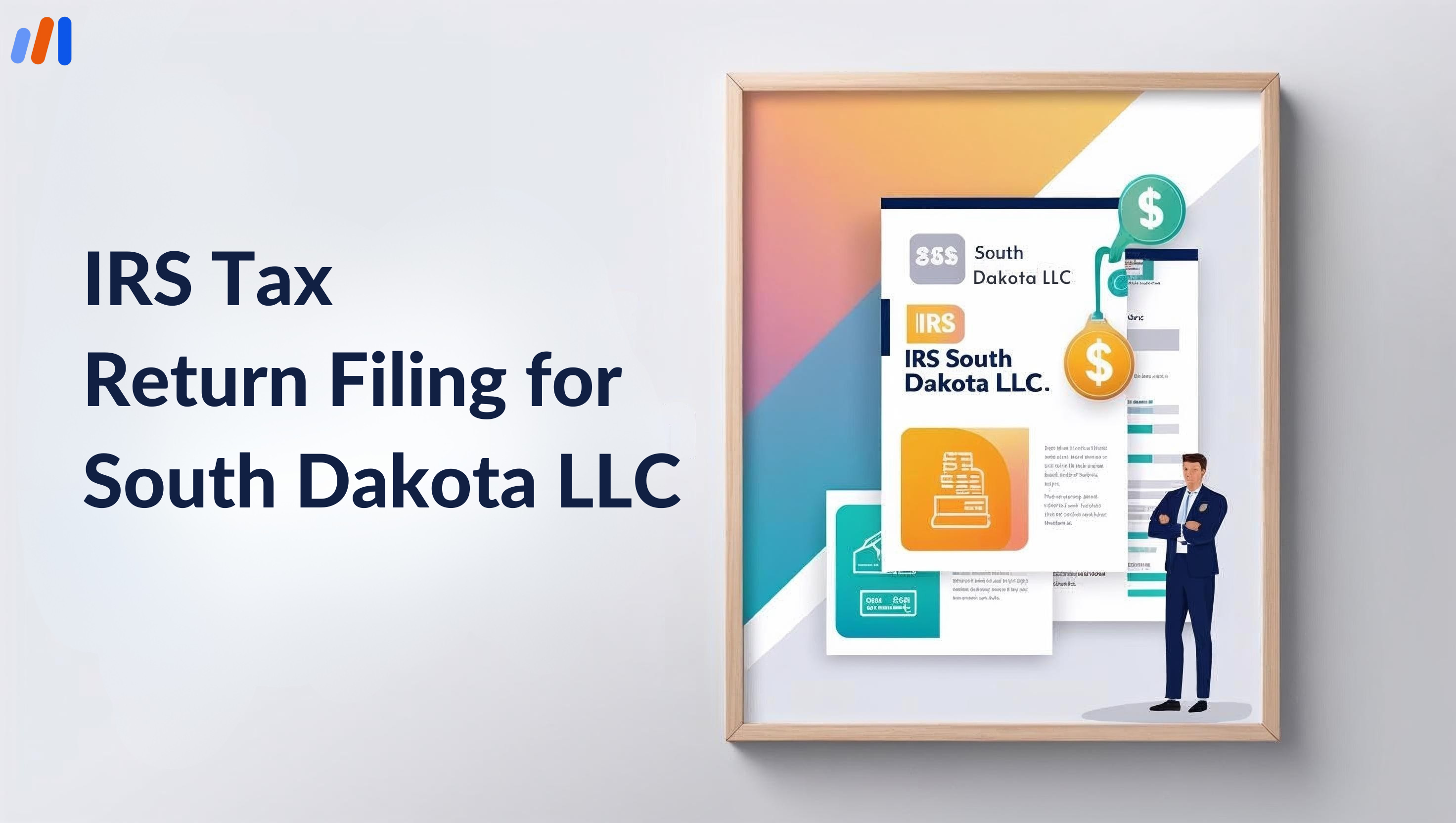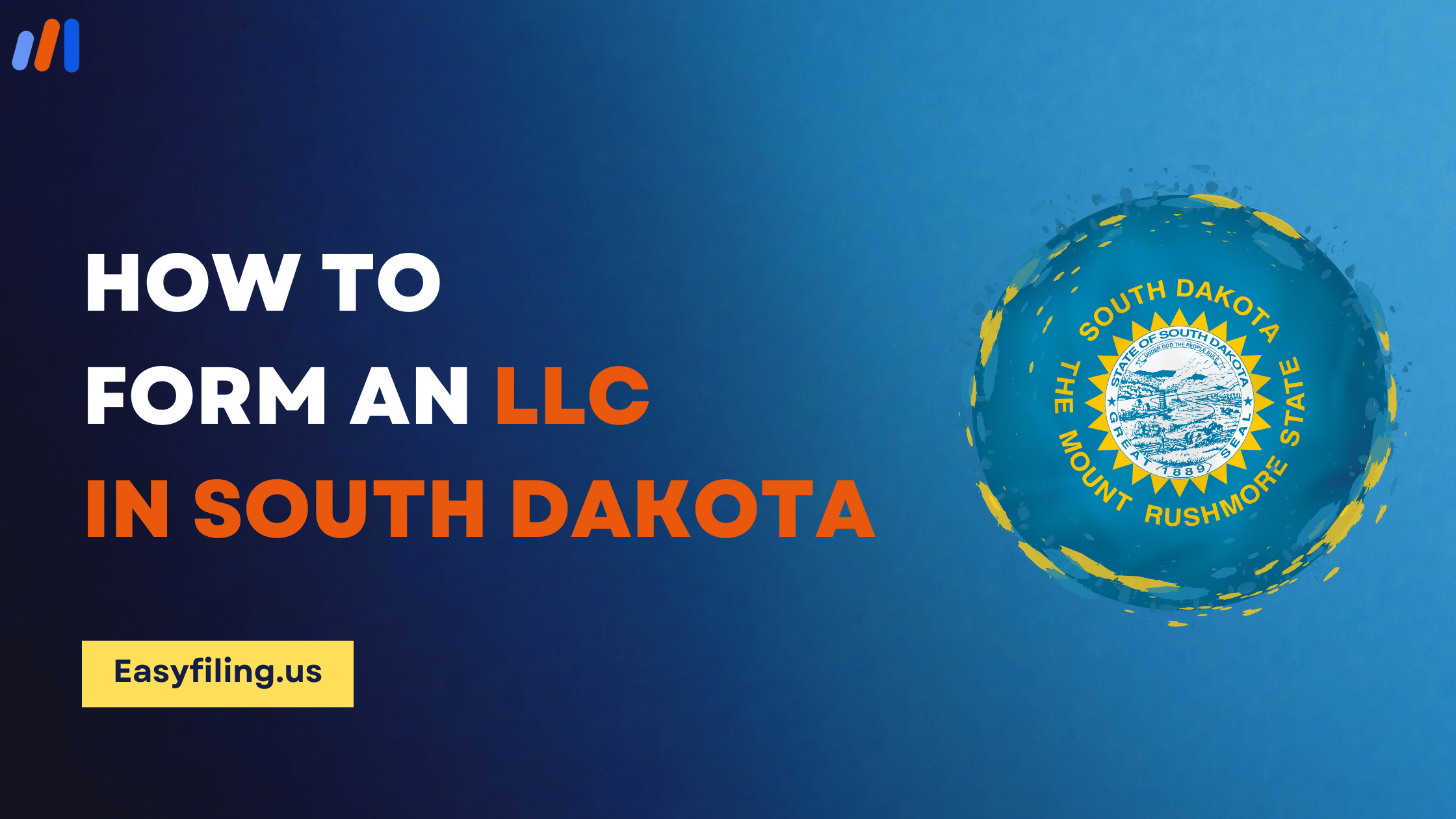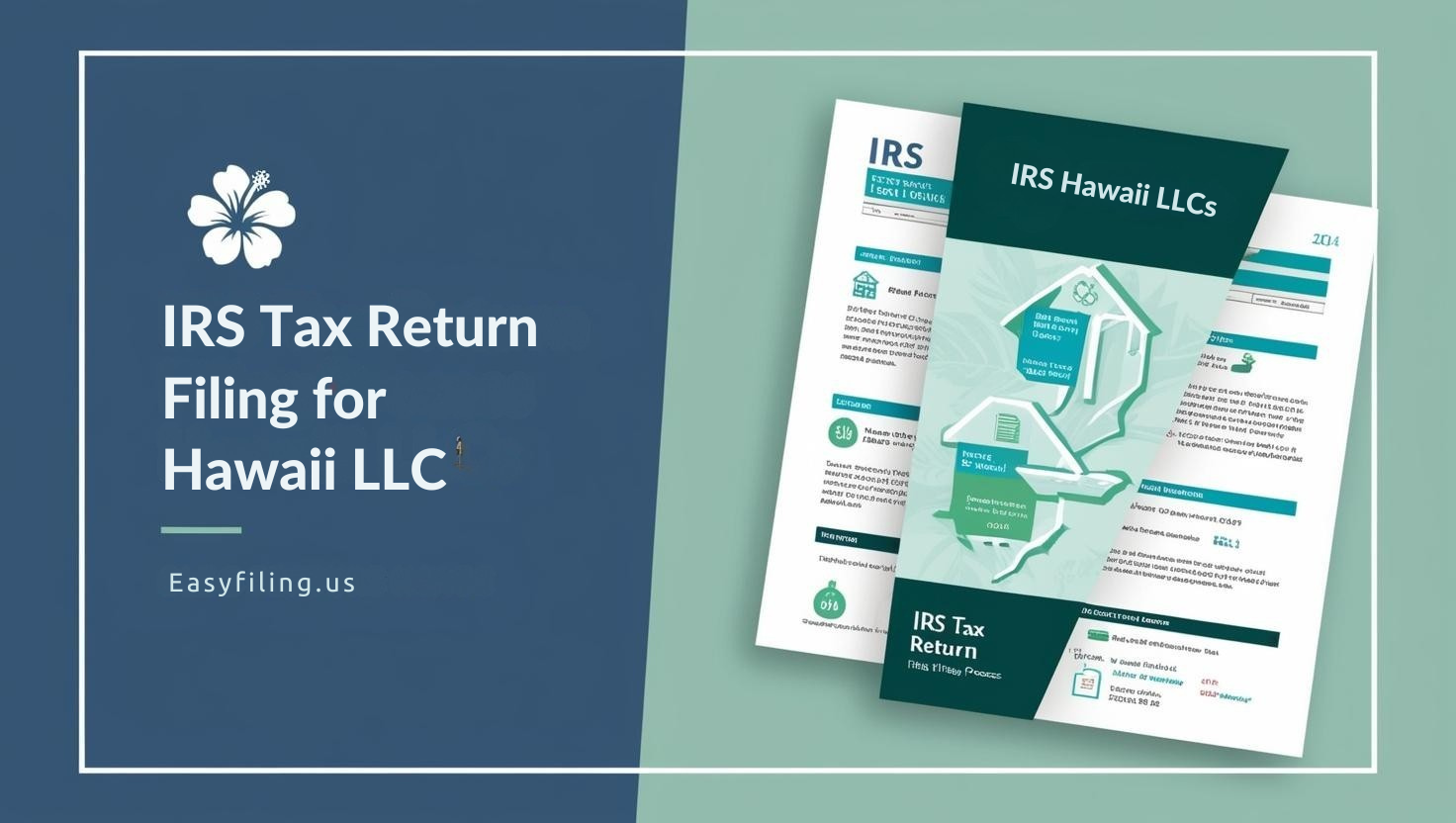Complying with tax requirements and filing deadlines for your South Dakota Limited Liability Company (LLC) is crucial for upholding standards and promoting your business’s financial well-being.
South Dakota does not impose a state income tax, which makes the state a good place for businesses. This, however, does not exempt LLC owners from federal taxation or other state requirements.
In this article, we will discuss the process of IRS tax return filing for South Dakota LLC, focusing on classifying the taxes, reporting the taxes, deadlines, and other relevant details.
Understanding South Dakota LLC Taxation
South Dakota LLC, like other states, does not have a limit on state income tax. This means they also do not charge personal or business corporate income tax on LLC’s revenue.
At the same time, LLCs are not free from state taxes and other external demands.
Federal Tax Filing Requirements for South Dakota LLCs
The Internal Revenue Service (IRS) has categories defining LLCs and their filing requirements.
Single Member LLCs: These are referred to as disregarded tax entities, where income and loss of a business are reported on a Schedule C tax form with Form 1040 of the owner’s tax return.
Multi-Member LLCs: These are automatically classified as partnerships and are required to fill out the U.S. Return of Partnership Income Form 1065 (also referred to as K-1). All members also get a K-1, which identifies each member’s share of profit/loss to report during personal tax declaration.
Electing Corporate Taxation of LLC: This kind of LLC allows taxing company to be taxed through Form 8832. Filing Form 2553 is needed to elect S Corporation status. These elections change how the entity files taxes and can change the taxable income as well.
South Dakota State Tax Obligations for LLCs
Even if South Dakota does not have a personal or corporate income tax, LLCs still must be mindful of other state obligations:
Sales Tax: LLCs that sell tangible products or services may be required to collect and pay sales tax. It is necessary to apply to the Department of Revenue for a sales tax permit and follow all sales tax laws.
Annual Reports: An LLC in South Dakota must submit an annual report to the Secretary of State’s Office. The cost as of 2024 is $50 for filings submitted online and $65 for those submitted on paper.
Important Tax Documents for South Dakota LLC Owners
For proper and timely tax calculations, the following documentation must be prepared by the LLC owners:
Income Statements: Reflective of the income generated by the LLC for the entire fiscal year, detailed records must be maintained.
Expense Records: All business-related expenses must be documented. This includes receipts and invoices, which serve as proof.
Payroll Information: If the LLC has employees, maintain records of wages paid and employment tax withholdings for LLC members.
Previous Tax Returns: Consistency and reference in prior year tax filings help avoid duplication, hence, copies must be retained.
Filing Deadlines and Compliance
Avoiding legal penalties requires compliance with tax filing deadlines:
Federal Income Tax Returns: Tax returns are generally accepted to be submitted by the 15th of April yearly. The following business day is accepted if that date is a holiday or falls on a weekend. The deadline for tax year 2024 is April 15, 2025.
State Annual Reports: These are due on or before the first day of the second month following the LLC’s anniversary month. For example, if your LLC was formed in June, the report is required by July 31.
Penalties for Late Filing
In this section, we will discuss tax filings that South Dakota LLCs are expected to complete. The possible penalties incurred from late filing include the following.
Federal Penalties: The IRS may impose late filing and late payment penalties, which incur interest over time.
State Penalties: Late submission of the annual report puts the LLC at risk of incurring supplementary fees and administrative dissolution of the LLC.
Tax Filing Deductions Common for South Dakota LLCs
The operating costs associated with the following business functions are tax-deductible, therefore reducing taxable income.
Business Expenses: Incurred costs, including rent, utilities, and office supplies, directly linked to operating the business.
Vehicle Expenses: Expenditures related to fuel, maintenance, mileage, and other business-related vehicles are deductible.
Professional Services: Accountants, attorneys, and business services consultants are tax-deductible.
Home Office: Users of a dedicated space for business purposes exclusively may claim a portion of their home bills.
Steps to File Your South Dakota LLC Tax Return
Confirm Your Tax Class: Check if your LLC is declared a sole proprietor, partnership, or corporation.
Collect Financial Documents: Make available all income and expenses records for the taxable year.
Complete the Necessary IRS Forms: Based on your LLC’s tax class, ensure the submission of the correct IRS forms.
Check for Accuracy: Validate all entries for accuracy and make sure there are no missing components.
Submit Before Deadlines: Pay any owed taxes and submit the completed tax returns by the due dates.
Maintain Records: All supporting documents need to be kept for a minimum of three years, along with copies of the filed documents.
How EasyFiling Can Help Owners Of An LLC In South Dakota
Tax obligations can be difficult to manage. EasyFiling offers a full suite of services to help South Dakota LLC owners:
- Tax Preparation and Filing: Providing detailed assistance in the timely and accurate preparation of federal tax filings.
- Annual Report Filing: Assistance with meeting the South Dakota annual reporting requirements in good standing.
- Compliance Support: Proactive and corrective support to ensure compliance with applicable laws and regulations on an ongoing basis.
- Consultation Services: Specialized guidance to address the unique characteristics and requirements of your LLC.
With professional service at hand, you can pay attention to scaling up your business rather than worrying about tax compliance.
Conclusion
When filing taxes for your LLC in South Dakota, you need to keep in mind the federal requirements, state-specific annual reports, and the need to minimize taxable income through deductions.
Though the absence of a state income tax makes South Dakota appealing for businesses, compliance with IRS rules is a fundamental requirement.
Meeting deadlines and preparing accurate tax filings will enable you to avoid penalties while keeping your LLC in good standing.
For easy tax submissions and professional advice, consider partnering with EasyFiling, your LLC tax and compliance service experts.
Call us now so you can relieve your mind from tax-related worries and concentrate on expanding your business.
Frequently Asked Questions (FAQs)
1. Is there an income tax levied on LLCs in South Dakota?
No, South Dakota does not impose a state income tax, hence, there is no obligation for LLC principals to pay state income tax, whether personal or corporate. Still, there are federal tax responsibilities.
2. What are the tax obligations for a South Dakota single-member LLC?
By default, a single-member LLC is considered a disregarded entity and reports income and expenses using Schedule C on the owner’s Form 1040. Should the LLC wish to be taxed as a corporation, it must submit Form 1120 (C Corp) or Form 1120-S (S Corp).
3. When do South Dakota LLC Taxes need to be filed?
For federal taxes, the filing date is April 15 of each year. If taxed as a partnership or S corporation, it is March 15. The South Dakota annual report is due before the first day of the second month following the LLC’s anniversary month.
4. What occurs if I miss the deadline for filing taxes?
The IRS imposes penalties and interest for missing the federal tax deadline. For missing the South Dakota annual report, your LLC could incur additional fees and may face administrative dissolution. In any case, your best option is to file on time or apply for an extension if necessary.
5. In what areas does EasyFiling assist my LLC regarding tax compliance and filing?
EasyFiling specializes in providing tax preparation services, compliance auditing, and annual report filing. We make sure our clients fulfill all federal and state tax filings while taking advantage of eligible deductions, thereby reducing the overall tax burden.
File Your LLC Today
25$ off with a coupon
Lock in EasyFiling's transparent rates and get lifetime compliance support at no extra cost.
Get Started Now









